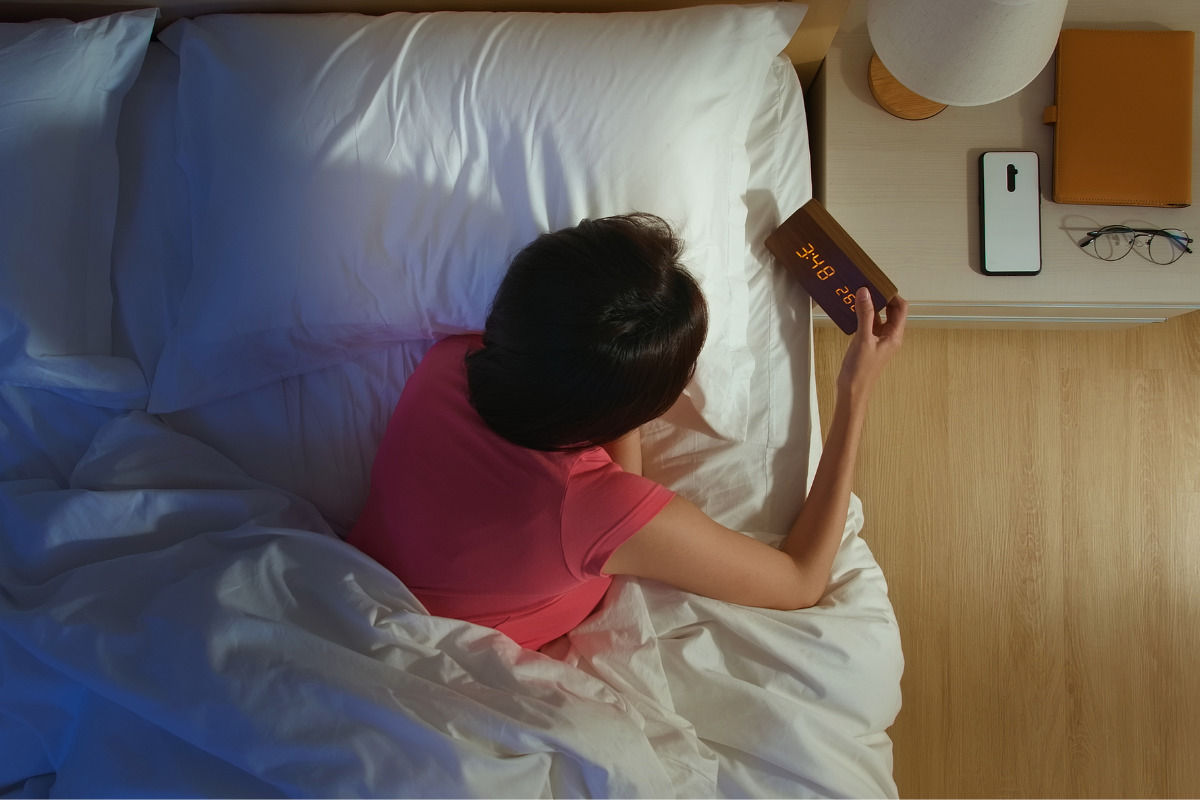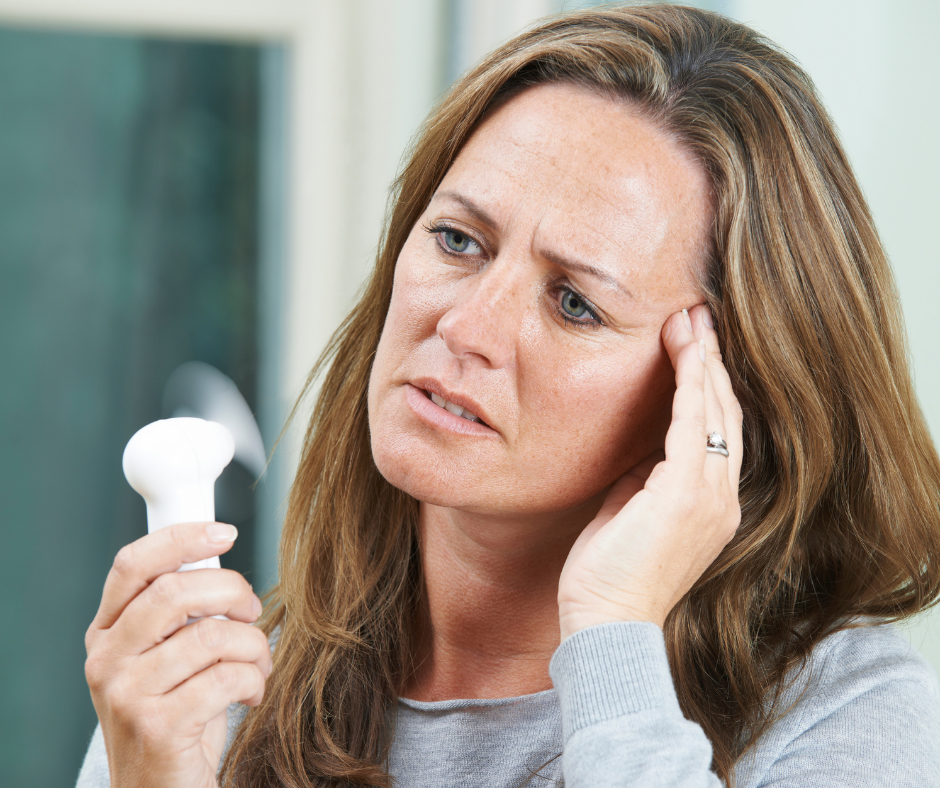Understanding Night Sweats and Chills during Menopause

Women often struggle with getting enough quality sleep around menopause, and one of the biggest culprits is night sweats and chills. These sudden episodes of excessive sweating and intense chills can disrupt your sleep and challenge your energy and mood the next day. Let’s delve into the causes of night sweats and chills during menopause and explore effective strategies to manage and alleviate them. It’s time to reclaim restful nights and a sense of control.
Causes of Night Sweats and Chills During Menopause
Night sweats and chills during menopause are primarily attributed to hormonal fluctuations. As estrogen levels decline, the areas of the brain that regulate temperature become more sensitive to small fluctuations. This means that smaller changes in temperature trigger your body’s temperature regulation response (sweating/shivering). The same changes that your body could tolerate before may now trigger hot flashes and night sweats. Other factors, such as stress, lifestyle choices, and certain medications, can contribute to the severity and frequency of these symptoms.
As hormonal levels settle into a new normal with time, night sweats and chills will also subside. Most women experience hot flashes for an average of seven to nine years, but they persist beyond that time for some people.
Lifestyle Changes to Reduce Night Sweats and Chills
Modifying your habits and lifestyle can help manage and reduce the occurrence of night sweats and chills during menopause. Consider implementing the following strategies:
Maintain a comfortable sleep environment
Keep your bedroom cool (under 64 degrees) and well-ventilated. Use lightweight, breathable bedding and consider moisture-wicking sleepwear to minimize discomfort caused by night sweats.
Avoid alcohol & heavy nighttime meals
Alcohol (especially red wine) is a major trigger of night sweats for many women. Heavy meals or spicy foods late in the evening can also increase the likelihood of night sweats and chills.
Prepare in advance for night sweats
Keep a glass of water by your bed, as well as another set of pajamas if you often need to change your clothes at night due to sweating.
Manage anxiety and stress
Stress is a major trigger of night sweats and poor sleep in general. Meditation or another mindfulness practice before you go to sleep can help your brain be ready for rest. Midday offers a library of immersive meditations and other relaxation techniques that are perfect for your nighttime routine.
Get regular physical activity
Some women find that including moderate or high-intensity exercise in their daily routine is helpful in reducing their daytime hot flashes as well as night sweats. Try to exercise earlier in the day to avoid interfering with sleep.
Medications to Relieve Night Sweats and Chills
Medications may be a good option when lifestyle changes alone may not provide sufficient relief. Menopausal Hormone Therapy is the most effective treatment for hot flashes and night sweats. Still, there are several non-hormonal medication options if hormone therapy is not the right choice for you, including a new prescription medication called Veozah. Veozah is a neurokinin 3 (NK3) receptor antagonist that blocks NKB from binding on KNDy neurons to help reduce heat signals that trigger hot flashes and night sweats. Discuss the risks and benefits of these choices with your healthcare provider to determine the most suitable approach for your specific situation.
Alternative Therapies for Night Sweats and Chills
Some science-backed alternative therapies also offer meaningful relief from night sweats. Cognitive behavioral therapy (CBT) has been shown to be equally as effective as menopausal hormone therapy at reducing the impact of hot flashes and night sweats without the use of any medication. Midday offers a health coach-guided CBT program for hot flashes that you can start today for relief.
Other evidence-supported alternative practices for relief of night sweats and chills include acupuncture and mindfulness.
Night sweats and chills during menopause can be disruptive and frustrating, but they don’t have to control your life. By understanding the causes of these symptoms, making positive lifestyle changes, and exploring various treatment options, you can effectively manage and minimize their impact.
Looking for more expert support on menopause stages, symptoms and strategies for relief? Download the Midday menopause app from the App Store or visit us at Midday.Health.
Sign up for more unique women’s health content
By submitting this form, you agree to the Lisa Health Privacy Policy and Terms of Use


